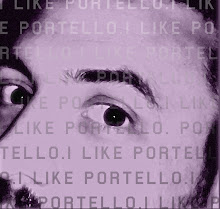----------------------------
Celebrity Dead Pool now has its own blog!
Find it at Celebrity Dead Pool
----------------------------
We’re halfway through the year and it’s been an absolutely bumper month. We’ve had celebrities and other notables tragically dropping off the perch left right and centre.
With no time to mess around let’s get straight into it, starting with one late-reported death from May.
 On the 31st of that month we bid a final ta-ra to entertainer Danny La Rue, a pioneer of the drag scene and one of the men responsible for bringing the whole men-dressing-as-ladies thing out of the underground and into the mainstream.
On the 31st of that month we bid a final ta-ra to entertainer Danny La Rue, a pioneer of the drag scene and one of the men responsible for bringing the whole men-dressing-as-ladies thing out of the underground and into the mainstream.
On the 2nd of June fantasy author David Eddings passed away at the age of 77. I’d probably have something more interesting to say about him if I’d read any of his books. I haven’t. But I’m sure they’re tops.
On the 3rd we lost Australia’s last surviving veteran of World War I, John Campbell Ross at the very respectable age of 110.
 Also on the 3rd we bid a fond farewell to actor, notorious bad-boy and all-round legend David Carradine at the age of 72. If you’re gonna go, there are worse ways than with some random hooker in a sleazy Thailand hotel room. Just sayin’. Rest in Peace, Grasshopper.
Also on the 3rd we bid a fond farewell to actor, notorious bad-boy and all-round legend David Carradine at the age of 72. If you’re gonna go, there are worse ways than with some random hooker in a sleazy Thailand hotel room. Just sayin’. Rest in Peace, Grasshopper.
On the 12th we witnessed the spooky death of Johanna Ganthaler who, having just survived the ill-fated Air France Flight 447 on June 1 by missing the flight, was killed in a car crash in Austria.
Seriously, it’s a story worthy of a film. Oh wait. It’s been done.
 The 15th saw the daylight assassination of Des ‘Tuppence’ Moran, patriarch and last surviving member of the Moran crime family.
The 15th saw the daylight assassination of Des ‘Tuppence’ Moran, patriarch and last surviving member of the Moran crime family.
On the 17th John Houghtaling, inventor of the Magic Fingers Vibrating Bed, a fixture of mid-priced hotel rooms last refurbished in the 1960s, died a very wealthy man at the age of 92. There is no truth to the rumour that his fortune was all in quarters, nor that he vibrated for fifteen minutes after he died. It’s all scurrilous and very silly gossip.
On the 19th Tomoji Tanabe, up until his final moments the world’s oldest living man, died of heart failure at the age of 113. Henry Allingham of the UK, also 113, takes his place as the oldest living man in the world. But not the oldest living person. There’s like ten chicks ahead of him.
(I wonder if all these supercentenarians know each other? They should start a facebook group. If I were suddenly made the oldest man in the world by the death of the previous incumbent I know I’d want immediate notification).
 The 21st saw the tragic death of actress Lorena Gale, best known for her role as the wise priestess Elosha on Battlestar Galactica. (<battlestargeekout> Although one might question the wisdom of plying the President of the Colonies with hallucinogens. </battlestargeekout> Still … Lorena Gale … awesome lady.)
The 21st saw the tragic death of actress Lorena Gale, best known for her role as the wise priestess Elosha on Battlestar Galactica. (<battlestargeekout> Although one might question the wisdom of plying the President of the Colonies with hallucinogens. </battlestargeekout> Still … Lorena Gale … awesome lady.)
 On the 23rd American TV announcer Ed McMahon passed away at the age of 86. A fixture of Johnny Carson’s Tonight Show, Ed’s famous catchphrase “Here’s Johnny!” was usurped by an axe-wielding Jack Nicholson in 1980’s The Shining. That’s got nothing to do with his death. It’s just kind of interesting.
On the 23rd American TV announcer Ed McMahon passed away at the age of 86. A fixture of Johnny Carson’s Tonight Show, Ed’s famous catchphrase “Here’s Johnny!” was usurped by an axe-wielding Jack Nicholson in 1980’s The Shining. That’s got nothing to do with his death. It’s just kind of interesting.
Finally, as previously mentioned (and covered by one or two other sources) the 25th saw the deaths of both Michael Jackson and Farrah Fawcett.
So it’s been a helluva month.
We’ve also seen some significant movement on the dead pool scoreboard, with no fewer than five people tipping the tragic passing of Michael Jackson.
As Mr. Jackson was 50 at the time of his death we award 50 points each to Benn, Eliza, Rob, Russell and Ty. Sadly Farrah Fawcett’s death does not result in any points, as she passed away from the illness she was suffering at the beginning of the year.
And with that, our scoreboard looks like this:
| Ty | 64 |
| Benn | 64 |
| Eliza | 50 |
| Rob | 50 |
| Russell | 50 |
Tune in again next month.
I hope for the sake of our remaining beloved celebrities that it’s a quiet one.


















